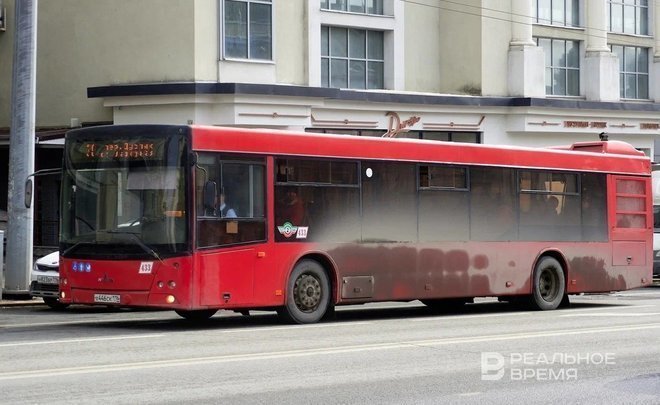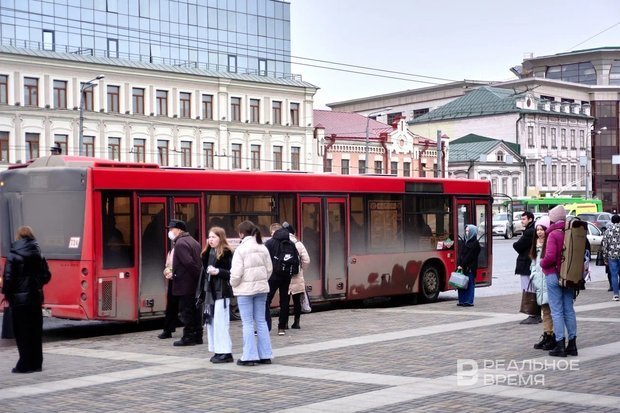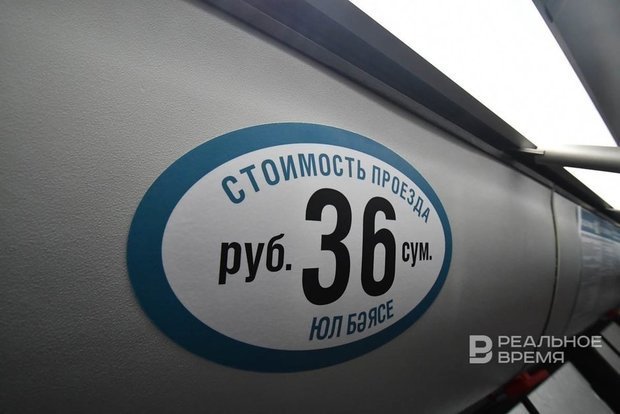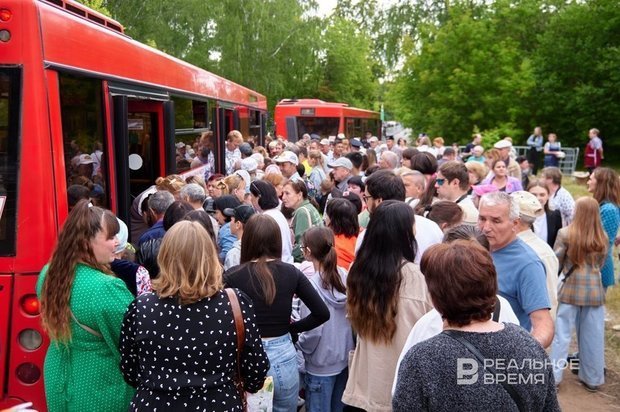‘A strong-willed decision must be made’: a third of Kazan buses are subject to immediate replacement, but there is no money
Carriers and the Mayor's Office of Kazan cannot agree on who will pay for the renewal of the fleet. Passengers are offered to ride trolleybuses

Almost three hundred Kazan city buses are subject to renewal. However, the city authorities and carriers still cannot decide where they will take the money for the purchase of equipment. Carriers claim that none of the programmes offered by the city for the renewal of vehicles is suitable for them, since the current ticket prices and subsidies will not cover their expenses. Meanwhile, new cars continue to get more expensive, and old ones are increasingly leaving the routes due to extreme wear-out. Why this process slows down and what to do to get it off the ground — in the material of Realnoe Vremya.
Buses need to be changed
The Mayor's Office of Kazan stated that the rolling stock of urban public transport needs to be updated in 2024. At the moment, local carriers and the executive committee are searching for the most suitable financing option. Against the background of the rise in price of buses, the low availability of financial instruments for their purchase, as well as the reluctance of private carriers to get into huge debts, the mayor's office offers passengers to reorient from buses to other types of transport.
“Carriers are considering various options for acquiring new motive power for the city. The new motive power is planned to be put into operation in 2024. Trolleybuses in our city are no less relevant, since there is already a developed infrastructure for them, not to mention such advantages as environmental friendliness and less costly operation compared to buses," the mayor's office explained to the citizens.
In response to the request from Realnoe Vremya, the executive committee reported that almost three hundred buses serving various routes need to be updated in the city. At the moment, there is a search for funds for their purchase. There is no solution yet. Meanwhile, out of the 700 buses serving urban routes, about almost a third are subject to immediate replacement.
“Currently, 263 buses are subject to replacement. Carriers are considering various options for updating the motive power, including the purchase of buses under the investment project “Acquisition of rolling stock of ground public passenger transport for subsequent leasing” (GTLK). There are no details on brands, equipment, manufacturers yet," the administration says.

Kazan will not receive new buses under a treasury loan from the feds
Let us remind that the Tatarstan Cabinet of Ministers has recently approved a detailed list of measures for the purchase of buses for 12 cities under a treasury loan. In total, it is planned to spend a little less than 1,4 billion rubles on the purchase of buses. The money was allocated for 76 large, 30 medium, and 15 small buses on 44 routes.
Aznakaevo, Almetyevsk, Bavly, Bugulma, Yelabuga, Zainsk, Zelenodolsk, Leninogorsk, Nizhnekamsk, Nurlat, Menzelinsk, and Naberezhnye Chelny will receive new transport. Most buses will go to Naberezhnye Chelny, which will receive 46 units of equipment.

Kazan is not on this list. Kazan carriers themselves did not support the purchase of buses on credit. In a conversation with Realnoe Vremya, Ruslan Yusupov, the deputy director of Baylyk No. 3 PLC in Kazan, said that 16 buses are required to be updated at his enterprise, for them this is 70% of the fleet. He stressed that their cars leave the routes every day because of their wear-out.
“Buses break down every day. Minor repairs happen all the time, as the equipment has a lot of wear-out, the runs are huge, buses run 30 kilometres every day. In the morning, the cars leave in full force, but in the afternoon, from 20 to 30% buses leave the route," Yusupov said.
The interlocutor of the publication stressed that they, like private owners, will not take part in the investment project “Acquisition of rolling stock of ground public passenger transport for subsequent leasing” (GTLK). This decision was made due to that subsidies are not included in this programme, and buses are very expensive now.

“We will get to a situation where businesses will go bankrupt”
As the head of the Committee on cargo transportation of the Chamber of Commerce and Industry of the Republic of Tatarstan, Sergey Sotnikov says, the first thing to pay attention to in the situation of carriers and the authorities of Kazan is their unwillingness to hear each other. He noted that the city has a task to carry passengers, this is a component that everyone supports. And bus companies look at this situation from the point of view of profit. Sotnikov wondered: at whose expense and who will pay for the purchase of new buses? After all, if the prices for travel do not increase, then it means that someone has to cover this difference.

“If you shift the responsibility to the owners of automobile enterprises, then they are not altruists and cannot work at a loss. Naturally, they have commercial interests in this matter. How to solve this issue? First, it is necessary to communicate with those who produce buses. For example, if we need trucks, then we go to auction, look for leasing schemes or loans, expect to make a profit, we know what the transportation tariffs will be. We calculate, and if it is profitable for us, then we buy, if not, then we will not buy the car. The same scheme applies to buses. If you know how much you can earn, and the economy is beating, then it makes sense to buy equipment. And if there is no profit, then there is no point in buying cars," the expert said.
At the same time, Sotnikov stressed that if the city wants to transport someone cheaply or for free, then there must be some kind of agreement on compensation, complicity in the purchase of transport, or it is necessary to use other means available for updating transport.

The entrepreneur noticed that the current situation has turned into a vicious circle that needs to be cut by a strong-willed decision. Either the city buys the transport itself and is engaged in its maintenance, or sets such tariffs that will allow the business to be afloat and engage in passenger transportation.
“In general, the fleet needs to be changed constantly, if you do not do it in time, then you can bring the enterprise to such a state when it will simply be too late. It is wrong to change buses every 10 years, it needs to be done annually. It is necessary to turn this into a natural process, then it will be easier," concluded Sergey Sotnikov.
In 2024, the city authorities are going to optimise the urban transport network
Kazan authorities have been considering changes in the city route network for a long time. It is possible that its optimisation also takes place next year. Just recently, the mayor's office said that “projects are being developed to optimise the route network of urban passenger transport, taking into account modern living conditions. Changes, according to the recommendations of NIIAT JSC, are planned to be made this year.”
Later, they announced a new decision, it is possible that plans to optimise the transport network will be simply transferred to 2024.
“Based on a comprehensive survey of passengers on all types of urban passenger transport and taking into account the requirements of citizens, the Research Institute of Motor Transport has developed three variants of the project for optimising the route network of urban passenger transport. The changes are planned to be made in 2023-2024," the city executive committee said.

By the way, NIIAT has already given recommendations to officials from Kazan on the work of the route network of urban transport. It is not the first time that the executive committee has resorted to the help of the Research Institute of Motor Transport (NIIAT). Communication with the organisation has been conducted since 2014. Then the experts presented their vision of solving problems in Kazan to Ilsur Metshin. The main purpose of the meetings was to improve the reliability of the transport network throughout the city. At the forefront are the priorities of public interests over the interests of individuals, including the development of public transport and parking policy in accordance with the identified tasks.